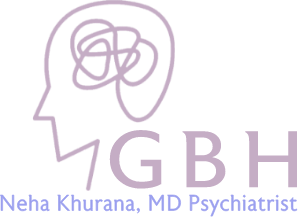Post-Traumatic Stress Disorder (PTSD) Treatment and Therapy in Norcross, GA

Personalized PTSD Treatment and Therapy from Certified Trauma Therapist in Norcross, GA
What is PTSD?
Post Traumatic Stress Disorder (PTSD) is a mental health condition triggered by experiencing or witnessing a traumatic event. Common triggers include natural disasters, accidents, combat, or any event involving harm or the threat of harm. PTSD can disrupt daily life, relationships, and overall well-being if left untreated.
At Georgia Behavioral Health in Norcross, GA, we specialize in PTSD treatment and therapy that is trauma-informed, compassionate, and tailored to each individual’s experience. Our team of certified PTSD psychiatrists and experienced trauma therapists is committed to helping you navigate the path to healing through proven therapeutic approaches.
Take the first step toward recovery. Contact us today to schedule a confidential consultation with a PTSD therapist in Norcross, GA.
Signs and Symptoms of PTSD
PTSD symptoms can vary from person to person, but they generally fall into four categories:
- Intrusion: Unwanted memories, flashbacks, or nightmares of the traumatic event.
- Avoidance: Avoiding places, people, or activities that remind you of the trauma.
- Negative changes in mood and thought: Feelings of detachment, guilt, or blame, and a distorted sense of reality.
- Hyperarousal: Difficulty relaxing, irritability, trouble sleeping, or being easily startled.
Who Can Develop PTSD?
Anyone who experiences a traumatic event can develop PTSD. However, certain factors may increase the risk:
- Experiencing repeated trauma.
- A history of mental health issues.
- Lack of a support system.
- Childhood trauma.
Treatment Options for PTSD Available at GBH
Effective treatments and therapies for PTSD include:
- Psychotherapy: Cognitive Behavioral Therapy (CBT), Eye Movement Desensitization and Reprocessing (EMDR), and exposure therapy are commonly used.
- Medication: Antidepressants or anti-anxiety medications can help manage symptoms.
- Lifestyle changes: Mindfulness practices, regular exercise, and support groups can complement treatment.
Getting Help If you or a loved one is struggling with PTSD, seeking professional help is a critical first step toward healing. Therapy and tailored treatments can help regain control and improve quality of life.
